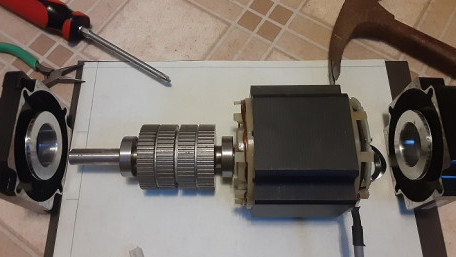
When the angle or distance of motion is more important than speed and power, certain motors shine brighter, like steppers, named for the individual steps they…
When the angle or distance of motion is more important than speed and power, certain motors shine brighter, like steppers, named for the individual steps they take when control voltage is applied.
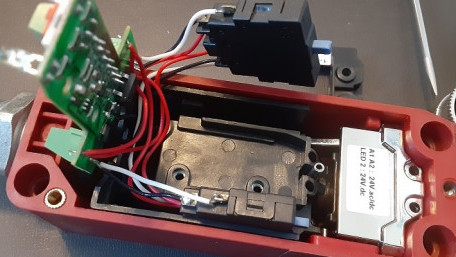
Safety devices have two main purposes, both of them meant for (you guessed it) safety. They protect both machine and…
Safety devices have two main purposes, both of them meant for (you guessed it) safety. They protect both machine and operator from harm. But what’s inside, and how do these switches work?
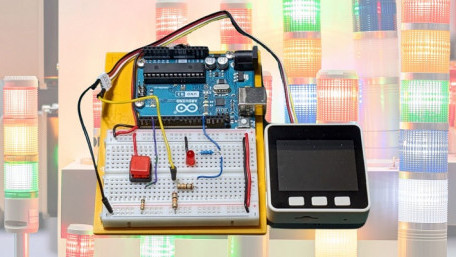
A flasher can easily be implemented using interlocking timers in a PLC environment on an Arduino Uno using OpenPLC,…
A flasher can easily be implemented using interlocking timers in a PLC environment on an Arduino Uno using OpenPLC, UiFlow Blockly Code, and a programmable HMI-based LCD unit.

Traditionally, automation requires a sizable investment and integration risks. RaaS empowers manufacturers to let someone…
Traditionally, automation requires a sizable investment and integration risks. RaaS empowers manufacturers to let someone else adopt the risks in exchange for an hourly or monthly subscription rate.
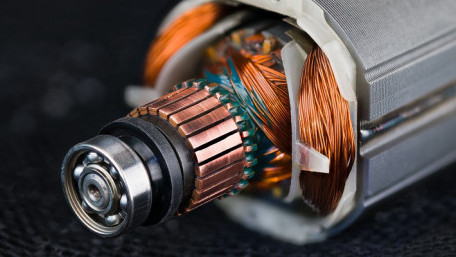
Direct current (DC) motors have existed since the late 19th century. What sets these motors apart from AC models, how do…
Direct current (DC) motors have existed since the late 19th century. What sets these motors apart from AC models, how do you control them, and how can you tell when it’s time to repair or replace them?
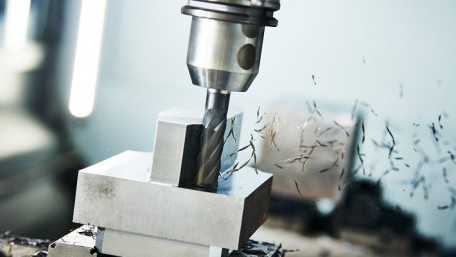
Learn how to build a machine learning model to predict failure classification based on machine parameters using a…
Learn how to build a machine learning model to predict failure classification based on machine parameters using a synthetic dataset modeled after a milling machine, the same process used in real-world systems.
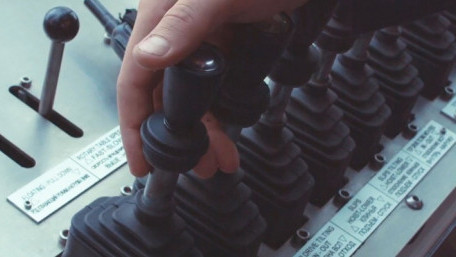
We usually think of joysticks in terms of video game controllers, but they exist in all kinds of industrial systems:…
We usually think of joysticks in terms of video game controllers, but they exist in all kinds of industrial systems: heavy equipment, overhead cranes, and even some robotic controls. But how do they work?
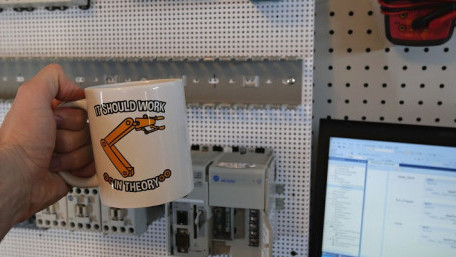
We are taught that parallel circuits maintain equal voltage across all branch resistors, equally sharing the source…
We are taught that parallel circuits maintain equal voltage across all branch resistors, equally sharing the source voltage. But reality is often far from ideal, and individual devices certainly impact the rest of the circuit.
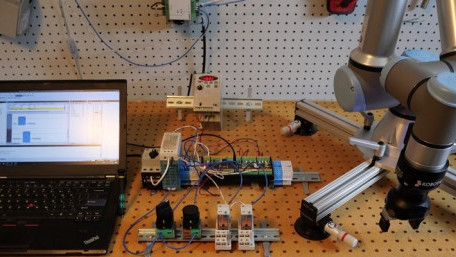
Previously, we described how to use the new Arduino PLC IDE to control discrete devices. This tutorial will describe how…
Previously, we described how to use the new Arduino PLC IDE to control discrete devices. This tutorial will describe how to connect various peripheral equipment (VFD and robot) using analog inputs and outputs.
We know that servo motors are found inside machines that rely on precise motion with feedback to verify proper operation,…
We know that servo motors are found inside machines that rely on precise motion with feedback to verify proper operation, but how do they work, and what makes them different from any other kind of motor?
Coil, field winding, rotor, stator, eddy current… When it comes to motors, there are numerous terms that describe the…
Coil, field winding, rotor, stator, eddy current… When it comes to motors, there are numerous terms that describe the theory of operation, but what is inside a 3-phase motor? Take a look, and learn how they work.
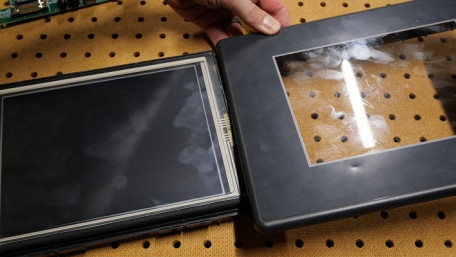
Human-machine interfaces, or HMIs, provide visual process data and allow access to process parameters and diagnostics…
Human-machine interfaces, or HMIs, provide visual process data and allow access to process parameters and diagnostics information. What’s inside these touchscreen displays, and how do they actually work?
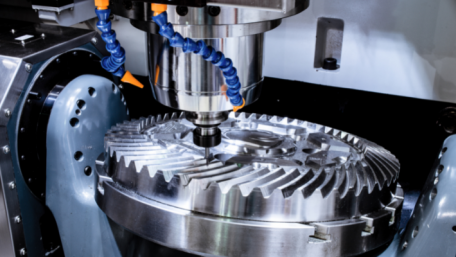
Programming languages often include sine and cosine functions. They simplify programming, but consume valuable memory…
Programming languages often include sine and cosine functions. They simplify programming, but consume valuable memory space and computation time. This can be overcome using simple approximations.
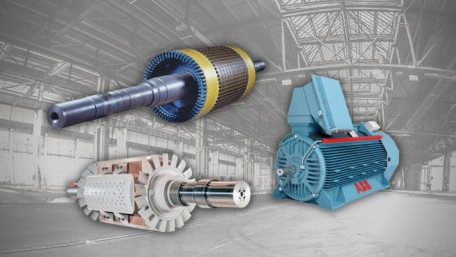
In this article, we will take a look at the differences between synchronous and induction motors, as well as the two…
In this article, we will take a look at the differences between synchronous and induction motors, as well as the two types of induction motors: squirrel cage and wound rotor.
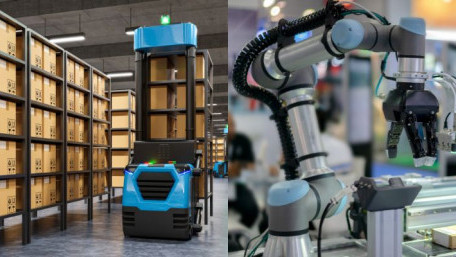
Robots are no longer unanimously just "robots"—there are specific tasks and functionality of each kind. Learn about the…
Robots are no longer unanimously just "robots"—there are specific tasks and functionality of each kind. Learn about the technology differences between fixed-location robots and mobile robots and why no one robot is like another.
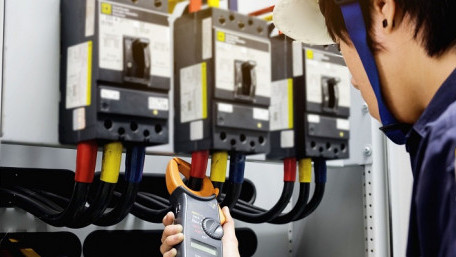
The diverse power terms in electrical generation systems include active, reactive, and apparent power, all of which lead…
The diverse power terms in electrical generation systems include active, reactive, and apparent power, all of which lead to the introduction of ‘power factor’ effectiveness in an AC circuit.
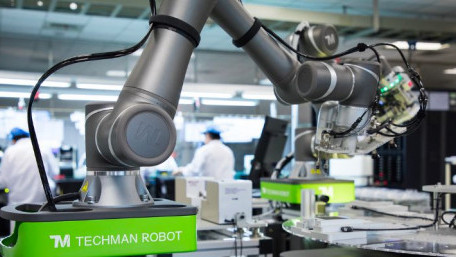
Learn about the common applications, programming procedures, and safety protocols of collaborative robot work cells,…
Learn about the common applications, programming procedures, and safety protocols of collaborative robot work cells, which are often simpler and less expensive than industrial robot work cells.
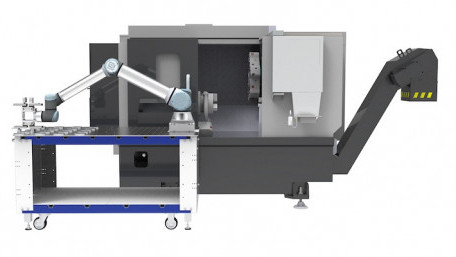
Our own Control Automation engineering staff had the opportunity to visit VersaBuilt, a CNC robotic integration shop…
Our own Control Automation engineering staff had the opportunity to visit VersaBuilt, a CNC robotic integration shop offering an application system from the Universal Robots UR+ series.
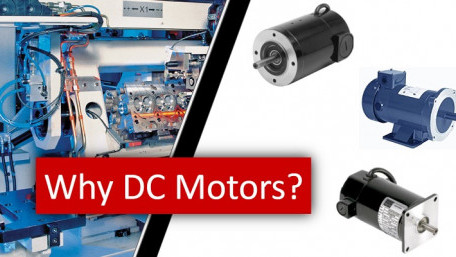
AC motors are common throughout industry - easily controlled by VFDs and without the maintenance that comes with DC…
AC motors are common throughout industry - easily controlled by VFDs and without the maintenance that comes with DC brushes. So then, why are DC motors still used in certain applications?
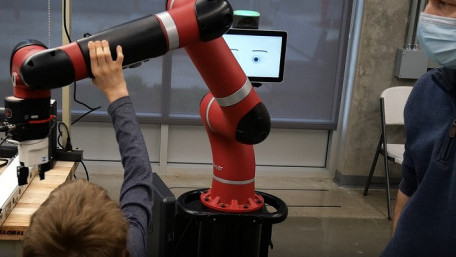
We've read about the capabilities of collaborative robots, but often, one question still remains - how do you program a…
We've read about the capabilities of collaborative robots, but often, one question still remains - how do you program a cobot? Last week, I got a chance to get my hands on a cobot for the first time.
